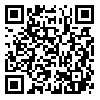دوره 6، شماره 4 - ( 7-1401 )
جلد 6 شماره 4 صفحات 272-262 |
برگشت به فهرست نسخه ها
Download citation:
BibTeX | RIS | EndNote | Medlars | ProCite | Reference Manager | RefWorks
Send citation to:



BibTeX | RIS | EndNote | Medlars | ProCite | Reference Manager | RefWorks
Send citation to:
Izadi H. The Effects of Policy Change Regarding Health Expenditures on Households Behavior. EBHPME 2022; 6 (4) :262-272
URL: http://jebhpme.ssu.ac.ir/article-1-409-fa.html
URL: http://jebhpme.ssu.ac.ir/article-1-409-fa.html
The Effects of Policy Change Regarding Health Expenditures on Households Behavior. 1. 1401; 6 (4) :262-272
چکیده: (1538 مشاهده)
Background: In order to assess households' socioeconomic level in society, policymakers and government planners nowadays pay close attention to families' access to health services. They calculate the percentage of a household's bundle of consumer goods and services. In this regard, the current study examines and analyzes the household's behavior as a result of the government's policies in changing and determining the share of the household's health expenses from its total consumption expenses. This is to ensure that society is kept at a minimum level of health.
Methods: In order to accurately execute health policies and change household behavior, this research studies the share and access of Iranian households to health products and services. The author used a Dynamic Stochastic General Equilibrium model through quarterly data from 1997 to 2020.
Results: Findings show that as this share increased, other items' consumption and utility decreased, which ultimately led to a fall in society's total utility according to the definition that utility is a term used as a measure of pleasure or happiness resulting from consuming goods and services.
Conclusion: The government and policymakers need to bear some of health expenditures and provide financial support to households until it reaches the desired level. This is to prevent a significant decrease in the level of total utility in society. This decrease is brought on by people's dissatisfaction with spending a larger portion of their expenses on health goods and services.
Methods: In order to accurately execute health policies and change household behavior, this research studies the share and access of Iranian households to health products and services. The author used a Dynamic Stochastic General Equilibrium model through quarterly data from 1997 to 2020.
Results: Findings show that as this share increased, other items' consumption and utility decreased, which ultimately led to a fall in society's total utility according to the definition that utility is a term used as a measure of pleasure or happiness resulting from consuming goods and services.
Conclusion: The government and policymakers need to bear some of health expenditures and provide financial support to households until it reaches the desired level. This is to prevent a significant decrease in the level of total utility in society. This decrease is brought on by people's dissatisfaction with spending a larger portion of their expenses on health goods and services.
نوع مطالعه: پژوهشي |
دریافت: 1401/4/29 | پذیرش: 1401/8/4 | انتشار: 1401/10/10
دریافت: 1401/4/29 | پذیرش: 1401/8/4 | انتشار: 1401/10/10
| بازنشر اطلاعات | |
 |
این مقاله تحت شرایط Creative Commons Attribution-NonCommercial 4.0 International License قابل بازنشر است. |




